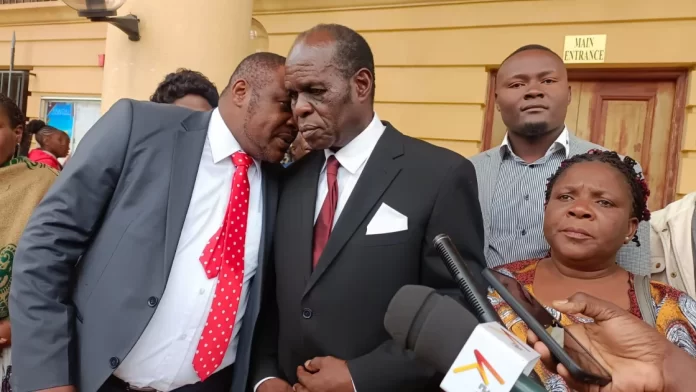In a recent court ruling, a Kenyan televangelist, Gilbert Deya, has been acquitted of child-trafficking charges due to insufficient evidence. The prosecution failed to prove allegations that Deya stole five children two decades ago and handed them over to women struggling to conceive.
Deya, a self-proclaimed pastor, was extradited from the UK in 2017 after a prolonged legal battle to remain in the country. Concerns about his activities were initially raised in a 2004 BBC investigation, which revealed that women attending his church in London were promised “miracle” babies despite their fertility struggles.
However, it was discovered that these supposed miracles took place in backstreet clinics in Nairobi, Kenya’s capital, rather than through legitimate means. The prosecution argued that the babies were stolen from impoverished Kenyan families.
After his time in London, Deya moved to Scotland, where he was arrested in 2006 under an international arrest warrant issued by Kenya. Despite the arrest, it took years before the case reached its conclusion.
In the recent ruling, Magistrate Robison Ondieki stated that the prosecution had failed to present compelling circumstantial evidence against Deya. Outside the court, Deya expressed his forgiveness towards those who sought to see him imprisoned and stated that the trial had damaged his reputation.
“I’m grateful that I’m free. I’m now going to continue to proceed with the mission that Jesus gave to me on earth,” Deya told reporters. He also hinted at the possibility of returning to the UK.
It is worth noting that in 2011, Deya’s then-wife, Mary Deya, was found guilty of stealing a baby from a major referral hospital in Nairobi and falsely claiming to have given birth to the child. Her conviction further added to the controversy surrounding the Deya Ministries.
The acquittal of Gilbert Deya has sparked mixed reactions, with some supporters celebrating his freedom while others express concerns about the justice system’s ability to hold individuals accountable for child trafficking and related crimes. The case highlights the importance of thorough investigations and robust evidence in such sensitive matters.





